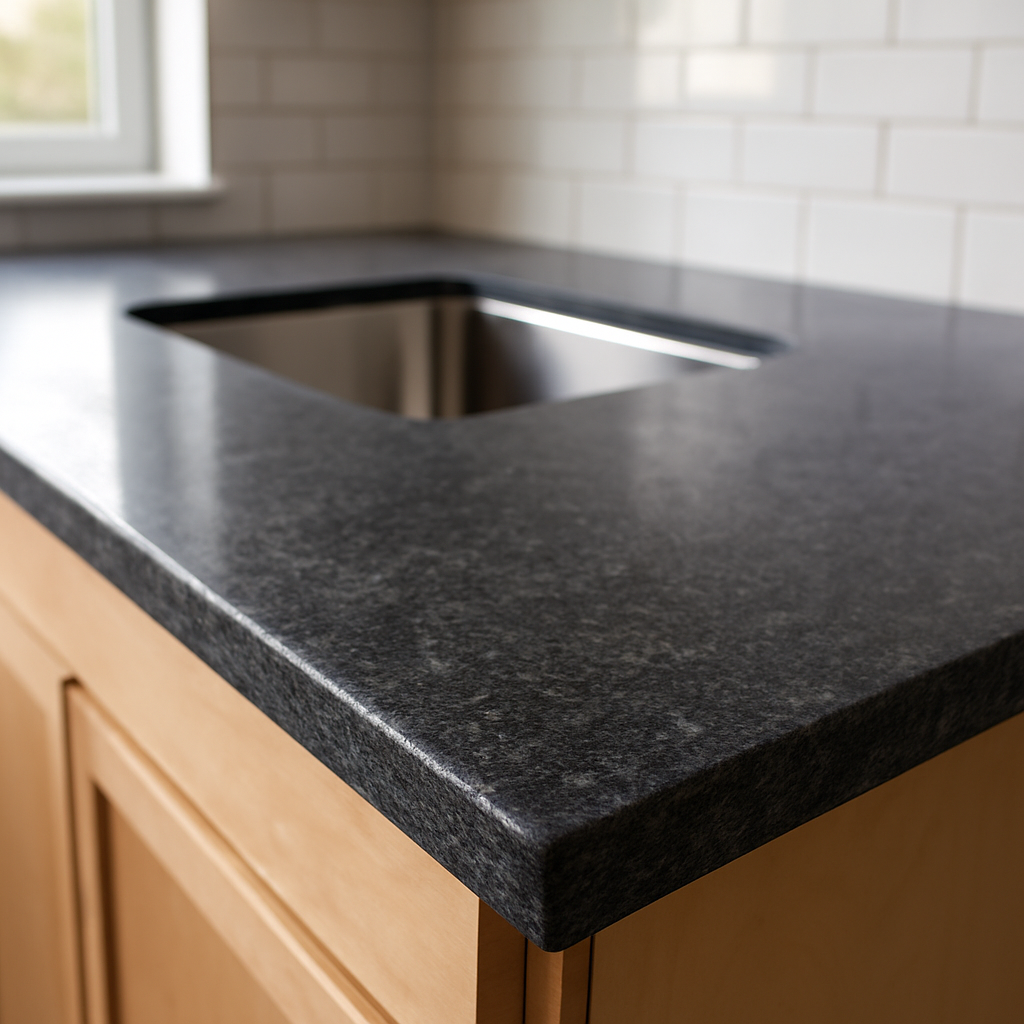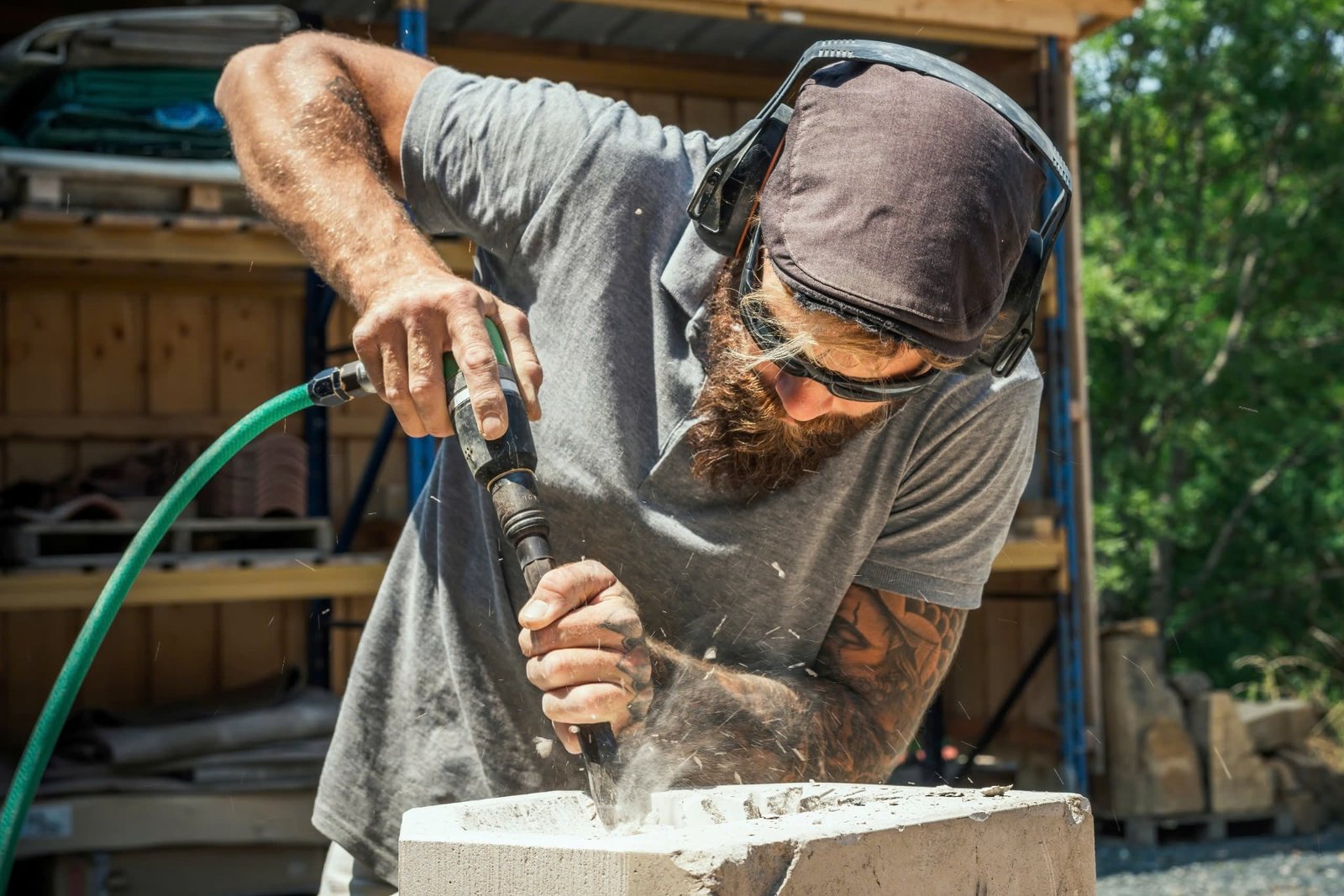
When planning a countertop installation, durability is one of the top considerations for homeowners. Your kitchen countertop isn't just a design element—
When planning a countertop installation, durability is one of the top considerations for homeowners. Your kitchen countertop isn’t just a design element—it’s a hardworking surface that needs to withstand constant use, moisture, heat, and impact. Whether you’re updating your kitchen or planning a full countertop replacement, choosing a long-lasting material ensures a better return on investment and fewer countertop repair headaches down the road.
In this comprehensive guide, we’ll explore the most durable materials used in kitchen countertop installation, compare their benefits, and help you decide which surface will perform best under daily stress—without compromising style.

Why Durability Matters in Countertop Installation
Durable countertops are essential in busy kitchens for several reasons:
- They resist chipping, scratching, staining, and heat
- Require less maintenance or countertop resurfacing
- Keep their finish longer, minimizing countertop installation cost over time
- Withstand the demands of food prep, appliances, and heavy cookware
Choosing the right surface today means fewer replacements in the future and a kitchen that continues to look great year after year.
What Makes a Countertop Material Durable?
Durability in countertops is measured by several criteria:
- Hardness: Resistance to scratches and dents
- Heat resistance: Tolerance to hot pots and pans
- Stain resistance: Ability to repel oils, wine, coffee, and other kitchen hazards
- Water resistance: Protection against swelling, warping, or mold
- Ease of repair: Ability to refinish or resurface if damage occurs
Now let’s explore how the most popular materials rank across these criteria.
1. Quartz – The Leading Choice for Durability
Quartz countertop installation has skyrocketed in popularity—and for good reason.
Pros:
- Non-porous: Resists stains without sealing
- Hard surface: Won’t scratch easily
- Uniform appearance: Engineered consistency
- Mold and mildew resistant
Cons:
- Can discolor under direct sunlight
- Not heatproof—trivets recommended
For homeowners who want the best mix of beauty and toughness, quartz ranks at the top. It’s also easy to keep polished—see What Helps Maintain Shine After Countertop Installation?
2. Granite – The Natural Stone Powerhouse
Granite countertop installation remains a timeless choice for high-traffic kitchens.
Pros:
- Extremely heat and scratch-resistant
- Natural variation and one-of-a-kind looks
- Lasts decades with proper care
- Good resale value
Cons:
- Requires sealing every 6–12 months
- Can crack if struck with extreme force
- Heavier and may require reinforced cabinetry
For those who love natural stone aesthetics and want maximum resistance to heat and wear, granite is a clear winner.
3. Solid Surface – Seamless and Repairable
Solid surface countertops (like Corian) offer impressive durability, especially when compared to laminate or tile.
Pros:
- Seamless installation
- Easily repairable and resurfaceable
- Resists mildew and bacteria
- Non-porous
Cons:
- Scratches easier than quartz or granite
- Not as heat resistant
- May dull over time
These are great for integrated sinks and modern designs where kitchen countertop fitting and seamless edges are a priority.
4. Concrete – Customizable Strength
Concrete countertops are incredibly tough when sealed properly.
Pros:
- Extremely hard and heat-resistant
- Can be custom-formed to your space
- Unique finishes with tints and textures
- Supports heavy-duty appliances
Cons:
- Requires sealing to prevent stains and cracks
- Susceptible to hairline cracks over time
- Can feel industrial or too cold for some tastes
Ideal for contemporary kitchens seeking a bold, modern vibe.
5. Wood – Natural Beauty, Moderate Durability
Wood countertops (like butcher block) offer warmth and timeless appeal but require regular upkeep.
Pros:
- Renewable and can be refinished
- Ideal for prep areas and islands
- Easy to repair minor scratches
Cons:
- Prone to moisture damage
- Needs oiling or sealing frequently
- Can dent more easily than stone
For proper care techniques, visit What Is Needed for Wood Countertop Installation?
6. Stainless Steel – Ultra Durable, Commercial Look
Though not common in residential homes, stainless steel is a go-to for durability in commercial kitchens.
Pros:
- Heat- and stain-resistant
- Easy to clean and sanitize
- Doesn’t crack or warp
Cons:
- Shows fingerprints and scratches
- Industrial look may not suit every home
- Expensive to fabricate custom sizes
Great for serious chefs or homeowners prioritizing utility over aesthetics.
Durability Comparison Table
| Material | Scratch Resistance | Heat Resistance | Stain Resistance | Maintenance | Lifespan |
|---|---|---|---|---|---|
| Quartz | High | Medium | High | Low | 20–25 years |
| Granite | High | High | Medium–High | Moderate | 30+ years |
| Solid Surface | Medium | Medium | High | Low | 15–20 years |
| Concrete | High | High | Medium | High | 20–30 years |
| Wood | Medium | Medium | Low | High | 10–20 years |
| Stainless Steel | High | High | High | Low | 25–30 years |
Cost Considerations for Durable Countertops
Durable materials often come at a higher upfront countertop installation cost, but they save money over time.
| Material | Cost per Sq. Ft. (Installed) |
|---|---|
| Quartz | $70–$150 |
| Granite | $80–$200 |
| Solid Surface | $50–$120 |
| Concrete | $75–$150 |
| Wood | $40–$100 |
| Stainless Steel | $100–$200 |
Before selecting, consult a countertop installation near me service to compare local pricing and options.
Final Thoughts
So, what is the most durable material for countertop installation? If you’re looking for a combination of resilience, low maintenance, and consistent beauty—quartz is the clear front-runner. For those who prefer natural elegance and unbeatable heat resistance, granite is a classic, time-tested choice.
Ultimately, the best countertop depends on your lifestyle, aesthetic preferences, and maintenance commitment. Durable materials not only extend the life of your kitchen countertop installation but also elevate the functionality and resale value of your space.

